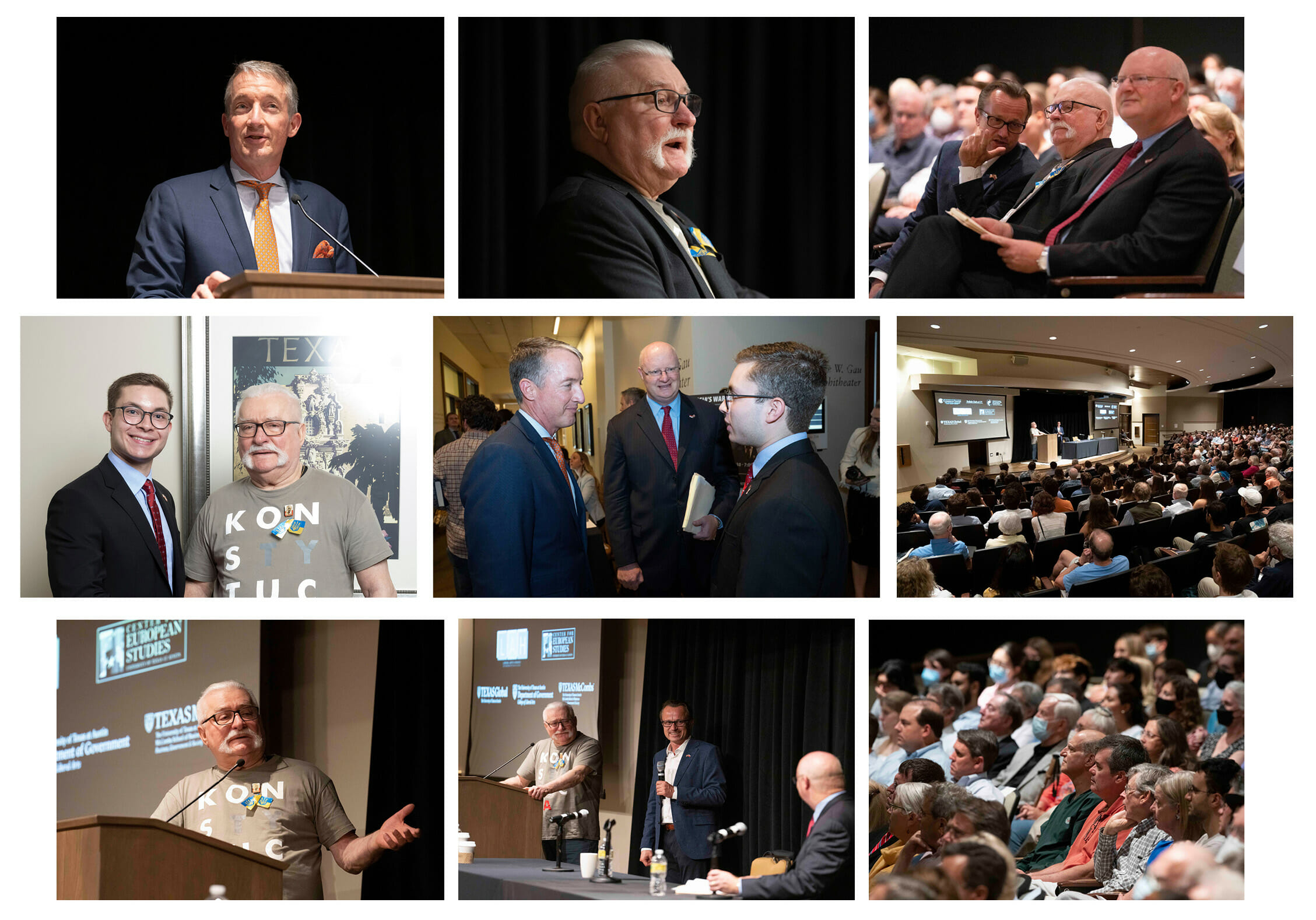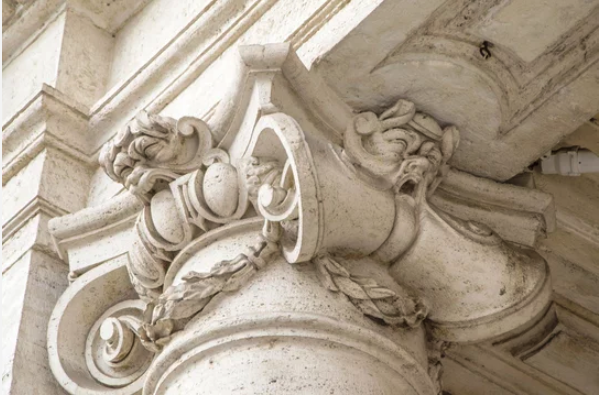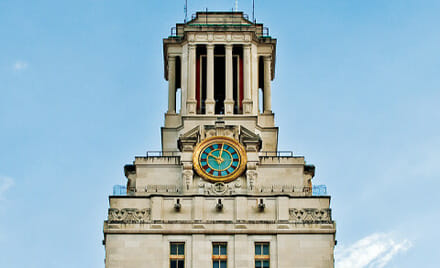Looking back at “Russia’s War on Ukraine and Its Global Impact”
May 09, 2022
Clements Center Executive Director William Inboden opened the event and introduced Jay Hartzell, President of the University of Texas at Austin. Hartzell welcomed the crowd of over 400, noting that May 5th, 2022 would be remembered as the day “the University of Texas at Austin hosted the man whose appearance on the world stage proved to be the beginning of the end of the Soviet Union, Lech Wałęsa.” Nathan Silverstein, Founder and President of the Polish Club at UT, took the stage and introduced Lech Wałęsa, crediting him with “starting the movement that would lead to the fall of the Soviet Empire.” Silverstein noted Wałęsa’s many accomplishments as the president of Poland: “He oversaw the transition to a free-market liberal democracy, and in 1991, Poland’s first fully free parliamentary elections. President Wałęsa also successfully negotiated the withdrawal of Soviet troops from Poland. He was a major supporter of Poland becoming a member of NATO and the EU.”
Wałęsa started off his remarks with a brief history of Poland’s relationship with the Soviet Union and Russia. Wałęsa told the crowd, “After the Second World War, Russians and Soviets came into Poland and settled, and forced upon us an economical and political system of their own.” Because of this experience, “Poles have a different [way] of sensing strategy and things about to happen. Well before the start of the Second World War,” notes Wałęsa, “we were telling people it was coming. But the world was not listening to us… As Poles, we sense the same type of anxiety today. This time, we urge you all to listen to us.”
Wałęsa then reflected on the United States’ position in the world. “Back in the day, the United States was leading economically, militarily and politically. We still want the United States to lead the world, but in a little different way.” Wałęsa tells the audience that the U.S. doesn’t have to do work for all of the people around the world or pay for all their costs, but that we do need to organize them and give them new ideas and missions. Wałęsa emphasized the importance of the United States regaining its leading role in the world: “We have a big problem with Ukraine today, but we’ll have another similar problem come up in the world somewhere else, and nobody will be able to control it at that time.”
Wałęsa remarked that we are living between two very different times. “The ‘countries and nations’ age is coming to an end, and on the horizon we see the age of globalization, intellect and technology. But we are still in between.” Wałęsa poses three questions that we need to ask in this era of rebuilding: What kind of foundation are we supposed to lay for this new age, what kind of economic system are we going to build, and how do we deal with demagogues and lies of politicians in the world? Wałęsa believes that this is the time of discussion and debate, noting, “We have an opportunity for peace and development, but we need to open everything for discussion and make adjustments to all of the laws and rules we have lived with.” In closing, Wałęsa tells the audience that his dream is for this generation to be known for being fighters, for getting rid of Communism peacefully, and for building a better, more just world for everybody. Wałęsa took several questions from the audience, including many about the current war in Ukraine being waged by Russia.





